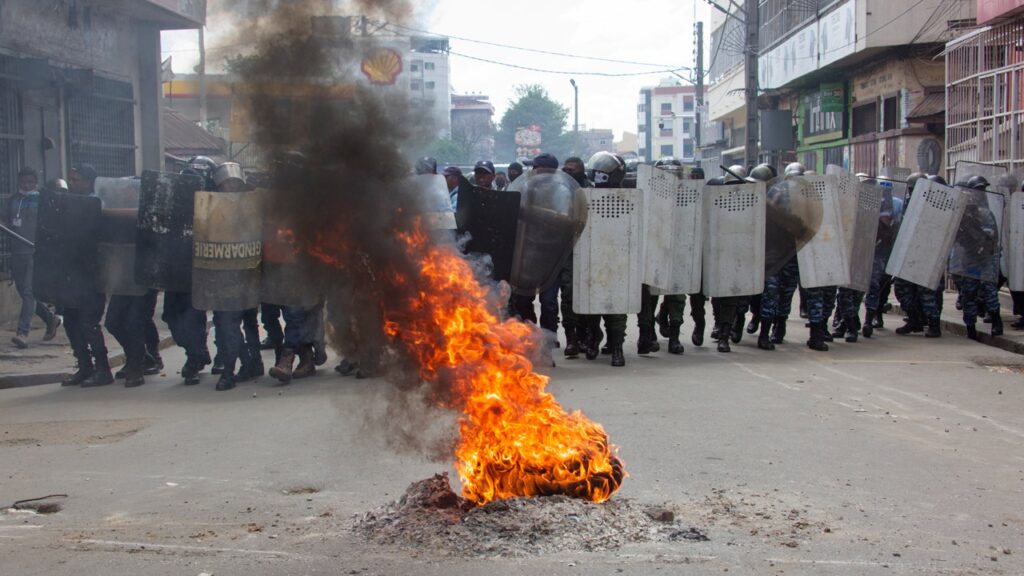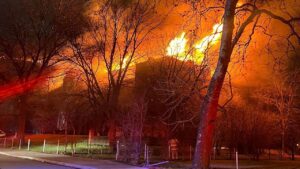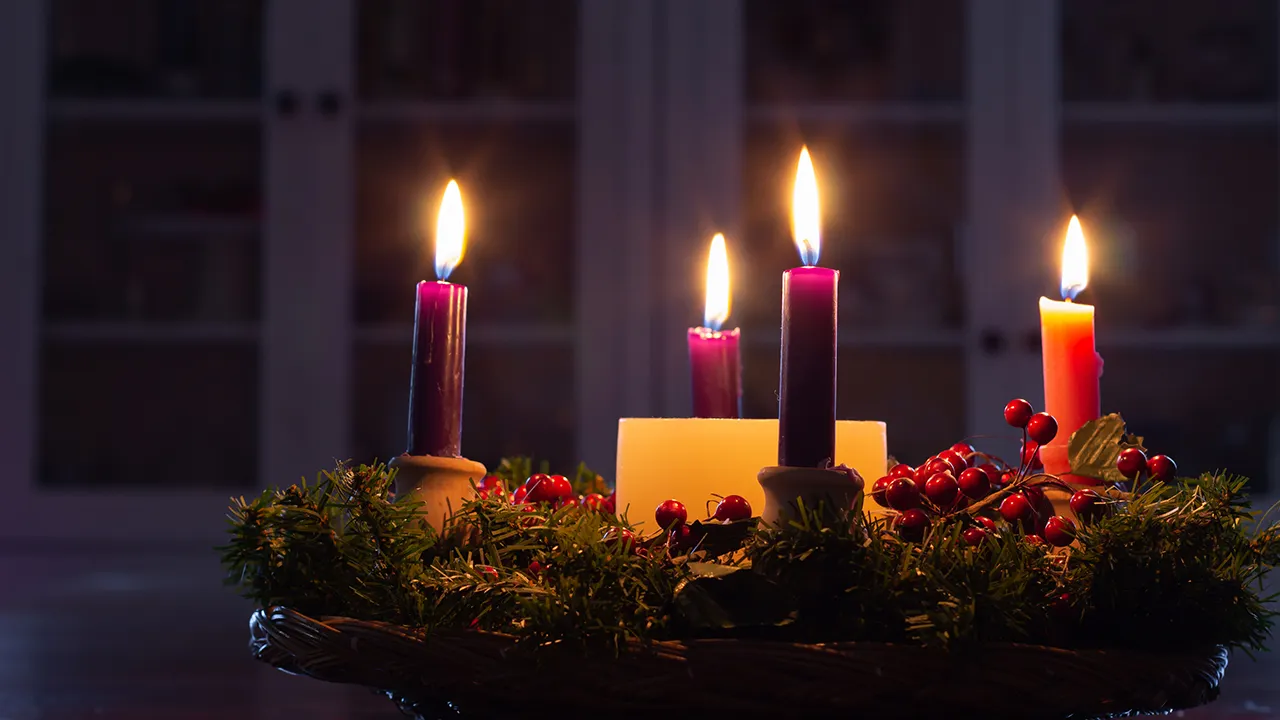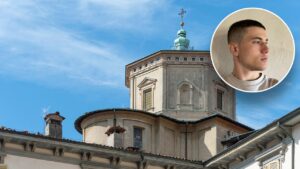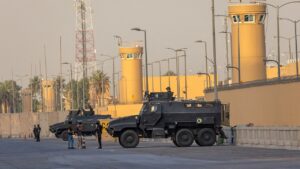Authorities in Madagascar imposed a night-time curfew in the capital after some polling stations were set on fire ahead of Thursday’s presidential elections that most opposition candidates are boycotting.
President Andry Rajoelina has pushed for a vote seeking reelection to a second term as the island nation has been roiled by protests from opposition groups pushing for a postponement, alleging that conditions for a legitimate and fair vote haven’t been met.
The police prefect in the capital, Antananarivo, said the curfew would run from 9 p.m. Wednesday to 4 a.m. — two hours before polls are due to open. The police official, Angelo Ravelonarivo, said polling stations had been torched late Tuesday in what he called an act of sabotage, and warned of arrests to stop any activity threatening the election.
ACTIVIST’S KILLING PUTS ZIMBABWE IN ‘DANGEROUS DIRECTION,’ OPPOSITION LEADER SAYS
The situation was calm in the capital as the curfew took effect Wednesday night.
Rajoelina, a 49-year-old former DJ, initially faced 12 competitors for Thursday’s election. But a group of 10 candidates said Monday they would not take part, claiming the electoral process was full of flaws. They urged people to stay away from polling booths.
The candidates who are boycotting include political rivals such as former leaders Marc Ravalomanana and Hery Rajaonarimampianina. They have organized peaceful marches across the capital almost every day since late September, but security forces have violently suppressed them, leading to serious injuries and dozens of arrests.
The protests on the the Indian Ocean island intensified in recent weeks as the opposition, some churches and civil society pushed for a postponement.
The election was postponed by a week from Nov. 9 by the country’s highest court after one candidate was injured during protests when security forces fired tear gas. But critics continue to push for further postponement.
Many in Madagascar and in the international community had hoped this election would break with a past of disputed votes, coups and political instability that have characterized the country since gaining independence from France in 1960.
Among the reasons why opposition groups are opposing the vote are that they argue that Rajoelina should be disqualified because he obtained French citizenship in 2014. Rajoelina said he took up dual citizenship to secure his children’s education in former colonizer France.
According to his rivals’ interpretation of the law, Rajoelina should have been stripped of his Malagasy nationality since he was an adult when he applied for a second nationality. However, the country’s highest court ruled in his favor last month.
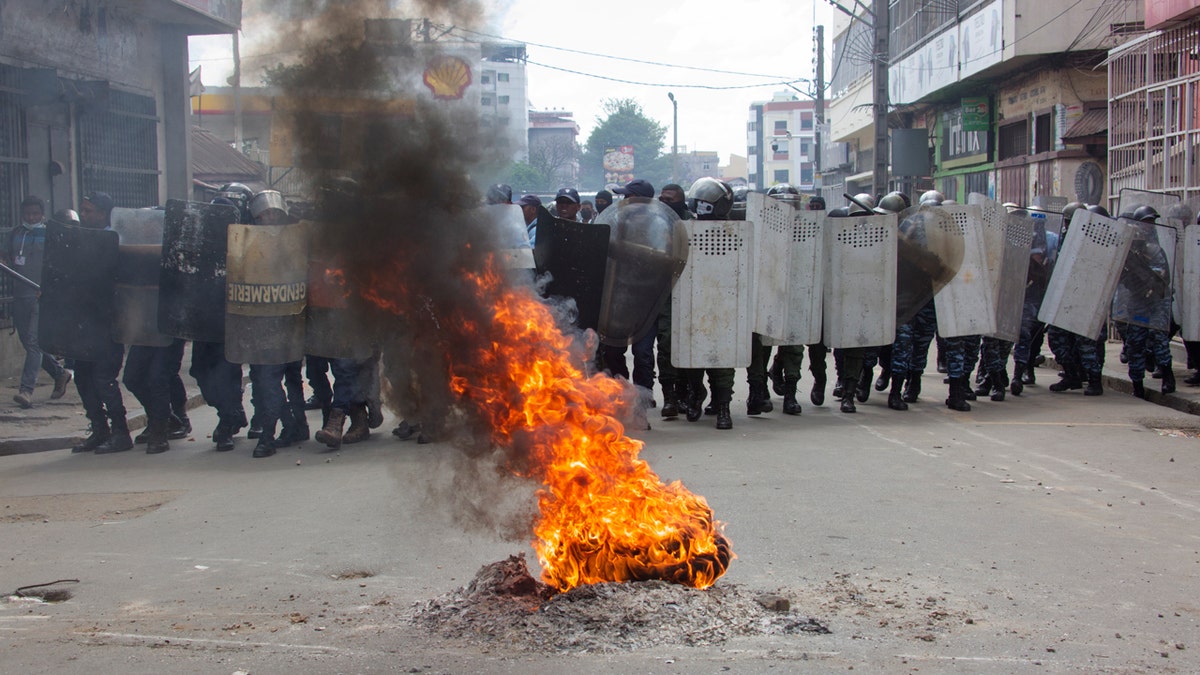
Police in riot gear are photographed in Antananarivo, Madagascar, Saturday, Nov. 11, 2023. (AP Photo/Alexander Joe)
Opposition leaders also allege that the national electoral commission lacks independence.
They also demand the establishment of a special court to deal with electoral disputes, alleging that the High Constitutional Court is packed with Rajoelina allies.
The president will face Siteny Randrianasoloniaiko, a 51-year-old deputy for Tuléar city under Rajoelina’s IRD party in the island’s far south. He has distanced himself from the president. He says he agrees with the concerns of the other candidates boycotting the election but has chosen to participate rather than complain on the sidelines.
The demands “are fair. But I don’t believe in empty chair politics,” said Randrianasoloniaiko, a wealthy businessman.
Also on the ballot will be Sendrison Daniela Raderanirina, 62, who has lived mainly in France to pursue a career in information technology. He says he is running “to respond to the urgency of the situation in the country.”
Raderanirina is seen as lacking the financial muscle of the other two candidates participating on Thursday.
Eleven million people in Madagascar are registered to vote.
Despite a poor economic and human rights record, Rajoelina says he is confident, declaring that “no one can take victory away from me.”
Most of Madagascar’s 30 million people still live in poverty in a country whose economy is anchored in agriculture and tourism but is largely dependent on foreign aid.
There has been a drop in the number of children attending school, and water and electricity shortages plague the capital, according to the World Bank.
Leading local nongovernmental organization Alliance Voary Gasy says concern is rife over massive deforestation, threatening what the United Nations calls Madagascar’s “unique biodiversity.”
According to a five-year study by local NGO Ivorary, less than a quarter of Rajoelina’s promises from the 2018 election have been fulfilled.
CLICK HERE TO GET THE FOX NEWS APP
Rajoelina first took power in 2009 and served as president in a transitional government from 2009-14 after the previous leader, Marc Ravalomanana, was removed in a military-led coup. He made a return in 2018 when he beat Ravalomanana in a runoff.
[ad_2]
Source link

